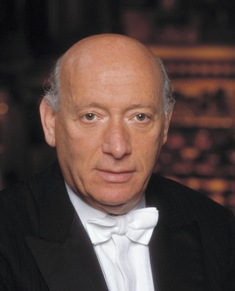Violinist’s Brahms sparks Cleveland’s final season stand

As with wine and relationships, the Cleveland Orchestra’s Miami residency has required something of a maturation process to find its footing. In its first two seasons, the orchestra’s concerts proved rather uneven, sometimes seeming more like ceremonial rituals than compelling live performances.
Issues remain, such as the ultra-conservative repertoire, which, with the exception of Thomas Ades’ Violin Concerto, will once again predominate in Miami in 2010. Also, the hall settings for Cleveland still don’t seem quite right, with an over-reverberance present Friday at the Knight Concert Hall that blurred detail and muted colors.
Still, the Cleveland Orchestra’s third Miami season has turned out to be the charm or, at least the one in which the orchestra seems to have found its musical comfort zone at the Adrienne Arsht Center, with the most consistent and energized performances to date.
The final program of the ensemble’s Miami season, to be repeated Saturday, was a largely successful one, with another essay in late Romantic favorites, led effectively by guest conductor Pinchas Steinberg. But the undisputed star of the evening was Nikolaj Znaider, solo protagonist in Brahms’ Violin Concerto.
We live in an era of super-abundance where string soloists are concerned, yet even with the many gifted players of our day, Znaider remains among the finest. The strapping Danish violinist looks like an athlete and plays like one, with a coiled intensity and concentrated eloquence well suited to Brahms’ fiddle warhorse.
Znaider is clearly in synch with the concerto’s blend of impassioned energy and melancholy lyricism, as manifest on his recent recording and downtown on Friday night. The violinist’s technique is so complete, that he can afford to live dangerously, and Znaider often indulged in a daring spontaneity, phrasing with freedom and bringing an element of hushed fantasy to the music as in the first-movement cadenza.
Principal oboe Frank Rosenwein lifted a gorgeous opening solo in the Adagio, showing admirable concentration despite the oblivious candy un-wrappers and aleatoric cell-phones. Znaider was at his finest in the rhapsodic slow movement, drawing out Brahms’ vein of wistful, tender introspection with skill and deep feeling. The finale made the requisite payoff with Znaider digging emphatically into the echt-Hungarian, off-the-beat accents, and Steinberg whipping up comparably boisterous support from the orchestra.
Performing Brahms’ demanding concerto clearly wasn’t enough for the irrepressible Znaider, who took a place at the back of the Cleveland violin stands as an orchestra member for Tchaikovsky’s Symphony No. 4.
 The Russian composer’s fate -laden work virtually defines Russian Romanticism with its schizoid gear-shifts between brooding darkenss and bursts of aggressive vehemence. Interpretively, Steinberg, left, didn’t plumb any new or notably individual depths—admittedly, a tough chore in this familiar music— but the conductor was an engaged and energetic presence.
The Russian composer’s fate -laden work virtually defines Russian Romanticism with its schizoid gear-shifts between brooding darkenss and bursts of aggressive vehemence. Interpretively, Steinberg, left, didn’t plumb any new or notably individual depths—admittedly, a tough chore in this familiar music— but the conductor was an engaged and energetic presence.
Tchaikovsky’s brilliant orchestration served as a virtual concerto for orchestra and the Clevelanders made the most of their solo opportunities, with the woodwinds particularly evocative in the languid, nocturnal Andantino. There was no lack of explosive drama or heft in the first movement, and the strings’ dexterity and unison cohesion were astounding in a lightning-quick race through the pizzicato Scherzo. The whirlwind finale with its frenzied rejoicing, showed a surprising degree of animal intensity not always evident from this ensemble, rounding off the evening in high-octane fashion.
The program led off with music of Samuel Barber. The program book attributes Italian inspiration for Barber’s School for Scandal Overture, yet the composer’s delightful early work is American through and through, with its quirky drive, breezy spirit, and snappy orchestration.
The Cleveland Orchestra’s lean, refined brilliance suits this light-hearted showpiece quite well, and Steinberg led a worthy, dynamic performance yet one that proved stronger on punch than playful wit or charm.
The program will be repeated 8 p.m. Saturday at the Arsht Center’s Knight Concert Hall. 305-949-6722; http://arshtcenter.org
Posted in Performances
Leave a Comment
Sat Apr 4, 2009
at 2:11 pm
No Comments
